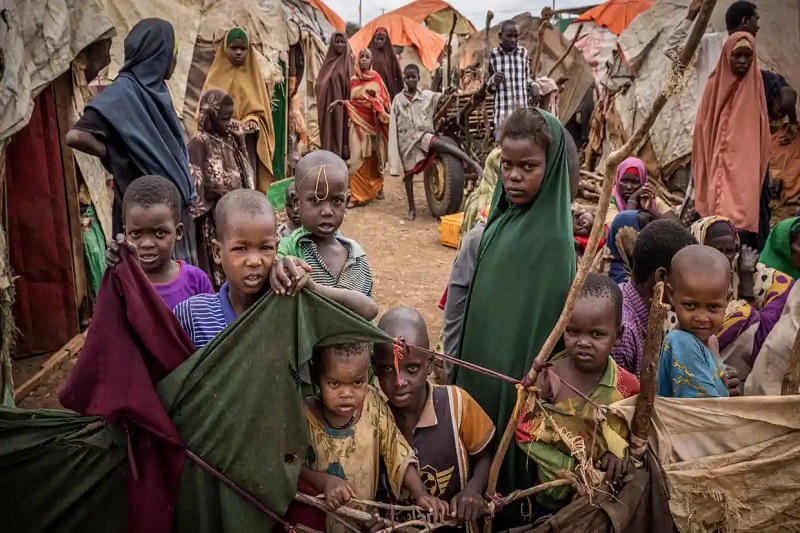Hassan Sheikh Mohamud, the President of Somalia, has spoken out against the terrorist organisation Al-Shabab for its blockade of the town of Baidoa in the country’s southwestern region for the past week. According to the authorities, an Islamist group has obstructed supplies entering and leaving the region, making the hunger that the record drought and the unrest have caused even worse.
Al-Shabaab erected the barrier on Tuesday, which caused all transportation to and from Baidoa, the South West State’s capital, to stop. Since cars delivering products from cities like Mogadishu are stranded as a result of the blockade, companies have been negatively impacted, and prices have increased as a direct result. The government is planning to launch a military offensive in the region in the near future.
Hussein Mohamud, the chief of staff for the president of Somalia, stated that the blockade is proof that Al-Shabaab is waging war against the people of Somalia. According to Mohamed Edin, a trader in Baidoa, companies will soon be forced to close since supplies are running low. This information was provided to VOA. He claimed that his livelihood is dependent on supplies that come from Mogadishu and travel through Afgoye, but that due to the blockade, his business has suffered. Edin has reported that his inventory is almost completely exhausted, and if the blockade continues, he may be forced to close his company.
Related Posts
Around 600,000 people who have been forced from their homes as a result of the Al-Shabaab insurgency and the drought currently affecting Somalia have made Baidoa their new home, according to the United Nations. Some analysts believe that by enforcing the blockade, Al-Shabab is demonstrating its strength, which may make the situation in the region even more precarious.
According to Abdirahman Azari, director of the Center for Analysis and Strategic Studies in Mogadishu, al-Shabab is sending both direct and indirect messages to the Somali government, indicating that they are still in power in certain regions of the nation, that they can impose sanctions everywhere in the country, and that people will accept their instructions wherever they are given.
Azari went on to say that the blockade had the potential to shock the government into beginning an already-planned offensive earlier than expected. The Somali government has said that they are on track to initiate Operation Black Lion, which would concentrate their efforts on the states of South West and Jubaland, which are located in the south of the country.
During the initial phase of the offensive last summer, government forces and local militias were successful in taking control of a portion of the country’s central region away from Al-Shabab. In the second phase of the operation, it is anticipated that Ethiopia, Kenya, and Djibouti will each send approximately 20,000 troops to Somalia in order to support the Somali military and clan militias.
According to Abdiaziz Isaack, a security and political expert at the Hamad Bin Khalifa Civilization Center, Al-Shabab is attempting to convey something with their blockade of Baidoa. According to him, this exemplifies Al-Shabab’s capability to pose a threat to the government in spite of efforts made both domestically and internationally to eradicate the organisation. According to Isaack, Al-Shabab is warning the Somali government that it will encounter fierce opposition if it moves into the second phase of its operation.
In terms of both insecurity and drought, the south-west state of Somalia continues to be the country’s most precarious geographic area. Antonio Guterres, the Secretary-General of the United Nations, travelled to Baidoa in April to launch a humanitarian campaign for Somalia. In his speech, he pleaded for “massive international aid” to prevent a famine from occurring.

